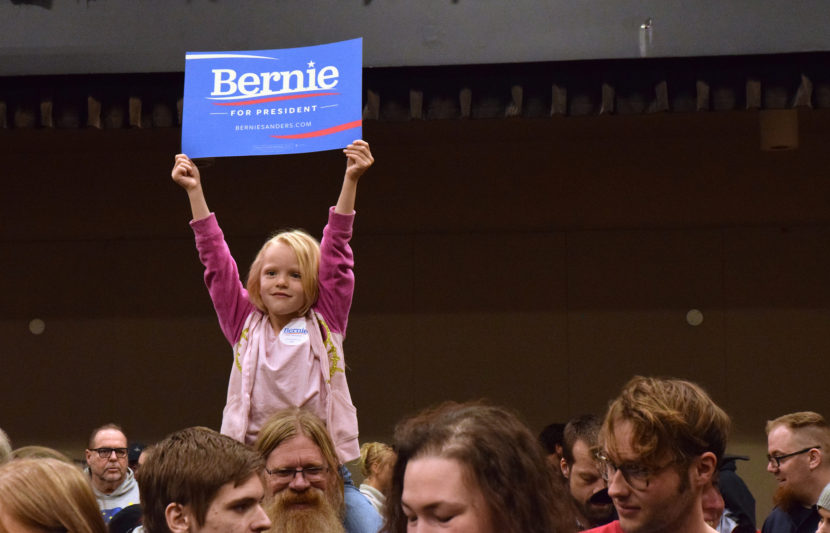
The private Facebook exchange went something like this:
Levi Younger, a recent political science graduate from Eagle River, said Bernie Sanders swept the Alaska Democratic caucus, so why is it fair for superdelegate Kim Metcalfe to spend one of Alaska’s few delegate votes on Hillary Clinton?
Metcalfe, of Juneau, is the state party’s national committeewoman. She tells Younger she’s been in the Democratic trenches for 40 years and resents a party newbie telling her what to do. Metcalfe firmly told Younger she’s for Hillary Clinton. And as a superdelegate, she can vote for whomever she wants at the national convention.
They kept it civil, barely, and replayed an internal party struggle that’s gone on for a century.
Younger posted their conversation for the world to see, and it’s become a lightning rod on social media. Thousands of people shared it on social media and joined the fray, mostly on Sanders’ side.
Peter Levine, an associate dean of civics at Tufts University, said the debate illustrates clashing ideas about how a party should select its nominee, and Levine said it’s understandable why the Sanders fans are frustrated.
“They have in mind the model that the party is a vehicle for the public to express its will. It’s the sort of first stage in the election,” Levine said.
By that reasoning, the nomination should be by majority rule, and newcomers should have as much say as established party officers. But Levine said historically, parties have seen themselves as associations that govern themselves, choose their own leaders and set their own agendas. And they like to reward their hardest workers.
“And so on that model, it doesn’t have to be majority rule, and then the party probably wants to have safeguards against being taken over by newcomers,” Levine said. “So it’s two different models, and they really have fought each other for more than 100 years in America.”
Since the 1970s, the parties have largely followed the majority rule model. Still, at this year’s Democratic National convention, about 15 percent of the delegates will be superdelegates who, like Metcalfe, won that status because of their position in the party. In other states, Democratic Congress members and other elected officials get superdelegate status.
The term “superdelegate” dates to the 1980s, and it’s essentially a vestige of the older strong-party model. Superdelegates can choose whatever candidate they like, no matter how their state voted. Sure, it sounds undemocratic, but political scientist Norm Ornstein, a scholar at the conservative American Enterprise Institute, says superdelegates were invented for a reason.
“The party looks to get a broader public grassroots reaction but it also wants to give at least some role for people who are invested in the party, have worked in the party, are concerned about the broader elements of the party’s well-being,” Ornstein says.
Superdelegates, typically chosen in a prior election, serve as a check on insurgencies and passions of the moment. Ornstein said they’re long-timers likely to understand the party’s need to elect Democrats up and down the ticket.
“It’s also the case that people who are connected to the party are going to have maybe a little more sensitivity to making sure you end up with a candidate who can win,” he said.
Sanders is pursuing superdelegates, and Ornstein said it’s no surprise the vast majority are going for Clinton. She has done a lot of joint fundraising, to help the party and other Democratic candidates. Ornstein points out that Sanders, as a senator, rejected the party label and these days is noncommittal about using his fundraising prowess beyond his own campaign.
“He’s got a lot of support. His issues are resonating with very substantial numbers of voters. He has raised a lot of money from small donors. All of that to his great credit,” Ornstein said. “But his attachment to the party whose nomination he’s seeking is a very, very tenuous one.”
Ornstein said that doesn’t play well to superdelegates.
And if you’re wondering about Republican superdelegates, technically there aren’t any, but many in the GOP establishment probably wish there were so they could thwart Donald Trump.
